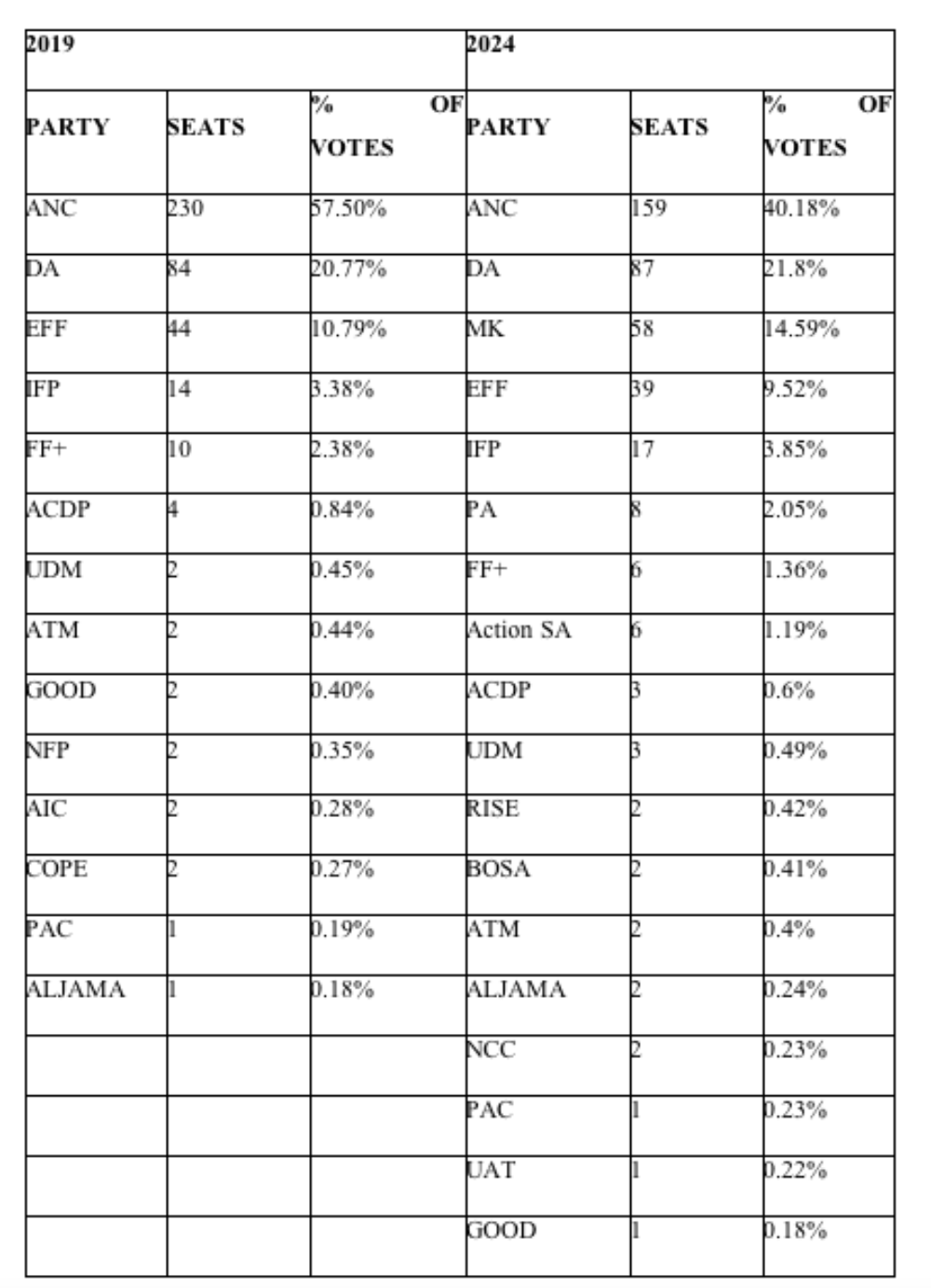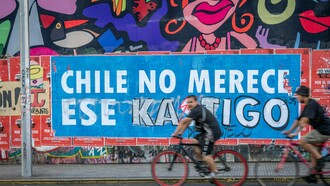South Africa's recent general elections marked a significant milestone, as independent candidates were allowed to stand for office for the first time. Independent candidates faced significant challenges when competing against well-established political parties with extensive funding and support. Despite these obstacles, the top-performing independent candidate, Thanasagren Moodley, received approximately 12,000 votes in KwaZulu-Natal, while the second-highest, Anele Mda, garnered around 3,000 votes in Gauteng.1
It is important to recognise that this election represented a pivotal moment for independent candidates, paving the way for increased participation and impact in future elections. As South Africa looks ahead to local government elections in 2026, we anticipate a growing presence of independent candidates, particularly at the local level, where they can more easily connect with their communities and gain support within their respective wards.
The African National Congress experienced a significant decrease in support, dropping below 50% for the first time since participating in elections. In the 2024 national assembly election in South Africa, the party's share fell to 40.2%, marking its lowest performance since the country's first democratic election in 1994. The 2024 election reflected a notable shift in ANC voter backing, with a 17-percentage point decline from the previous year.2 The turmoil in July 2021, stemming from a major division within the ANC, resulted in violent unrest in KwaZulu-Natal and Gauteng provinces, incited by supporters of former President Jacob Zuma. This led to casualties and extensive damage to public property, ultimately contributing to the establishment of the MK party, derived from the former military wing of the ANC. This development symbolised a significant change in the country's political landscape, adding complexity to the pursuit of national unity.
The ANC did not win a majority in the recent national elections. As a result, a coalition government called the Government of National Unity was established, consisting of various political parties such as the ANC, Democratic Alliance (DA), Inkatha Freedom Party (IFP), Pan Africanist Congress (PAC), United Democratic Movement (UDM), Rise Mzansi, Freedom Front Plus (VF Plus), Al Jama-ah, and the United Al Jama-ah Party (UAT).
The election results have sparked hope for the formation of coalitions involving the main political parties in the country. With the ANC securing 40.2% of the votes and the Democratic Alliance (DA) receiving 21.8%, there is a potential for significant change in the political landscape. Additionally, the emergence of the newly established MK party, led by former President Jacob Zuma and the considerable support for the Economic Freedom Fighters (EFF) introduce diverse viewpoints, although the EFF is not part of the GNU. Each party represents specific policies and ideologies, and the future of South Africa will be shaped by constructive discussions and cooperation during the government formation process.
Source: Parliamentary Monitoring Group, with results from the IEC.
It is noteworthy that the National Assembly of South Africa currently encompasses 18 political parties, indicating a rise from the 14 parties present in 2019. The recent South African National Assembly elections have prompted substantial alterations in the composition of political parties within the assembly, leading to the departure of the Congress of the People (COPE), the African Independent Congress (AIC), and the National Freedom Party (NFP). This transformation reflects a significant shift in South Africa's political landscape. As we look ahead, a pivotal task involves fostering cohesion among major parties to form a coalition government.
This endeavour encompasses navigating complex policy disparities and historical frictions, not solely between the ANC and other parties, but also amidst the various parties within the government. For instance, the policy stances of the DA sharply contrast those of the EFF. Each party must adapt its policies and secure influential ministerial positions. Furthermore, the long-term viability of a potential coalition government hinges on its ability to cultivate authentic collaboration among these diverse political factions. Ultimately, such a government will need to adeptly manage internal conflicts to develop a unified strategy for addressing the nation’s entrenched challenges. Clearly, this undertaking will be intricate and demanding.
Notes
1 Karabo Mokgonyana, Why independent candidates did not perform well in the 2024 elections, Mail & Guardian, 4 June 2024.
2 Natalie Cowling, The African National Congress (ANC) general election results in South Africa from 1994 to 2024, no 146, New Left Review, 21 June 2024.
















